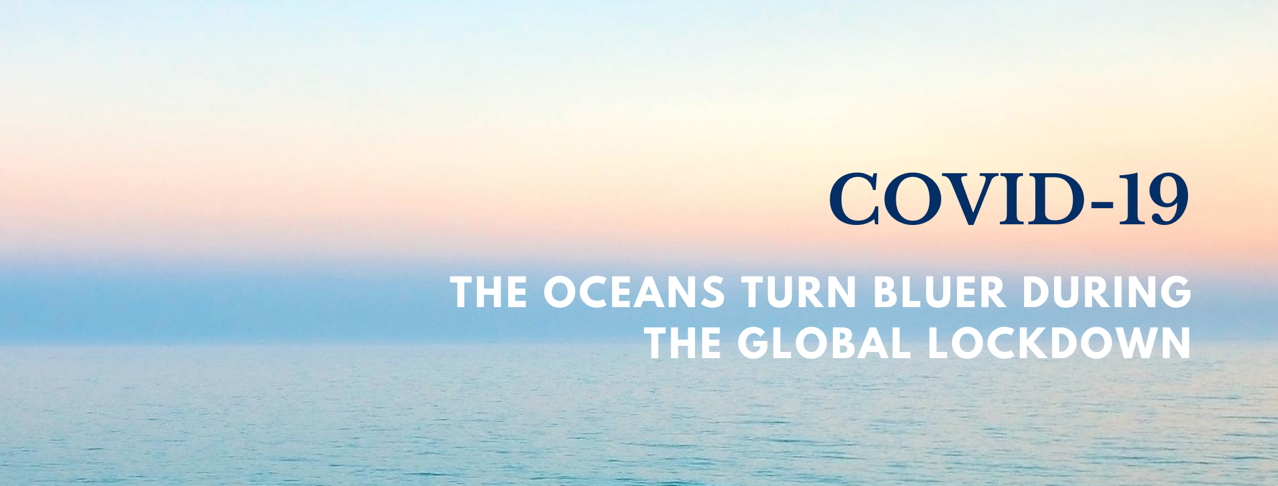COVID-19: The oceans turn bluer since global lockdown
By Assoc. Prof Dr. Mohd Fadzil Akhir,
Director, Institute of Oceanography and Environment
The beach is about 1 km away from my home, and when the movement control order (MCO) eased some of its restrictions, I decided to go for a walk along the beach. I could not stop noticing something different as I enjoyed the morning breeze. There was very little debris scattered around.
Walking along the beautiful and white sandy beach always sounds inviting, but it used to be a little stressful especially when you were welcomed by plastics and rubbish. But this time around, the beach is cleaner. And that morning, I couldn’t stop smiling all the way home.
There are many reports citing the same observation around the world. The vibrancy in which the planet has responded to the global lockdown, has revealed how quickly nature can recover if given a break. In some reports, people were surprised when they observed clearer water at the coast.
In the US, a team of scientists conducted a water quality analysis in one of the areas of waterways that were usually occupied with visitors. They were pleasantly surprised with what they discovered. It seems that some of the water quality has rebound exceptionally quickly.
In our region, less tourists means more turtles land on the beach to hatch. There were reports of increased endangered leatherback turtles nest discovered in Phuket. It records the highest number of nests in 20 years. Lowlights and less human disturbance somehow attract more turtles to land.
Similar pattern of higher turtle landing can be observed in Redang Island especially at Universiti Malaysia Terengganu Turtle Hatchery at Chagar Hutang beach. Here, we practice total silence and lights-off during night time and it has been proven that turtles prefer a quieter and beach without human disturbance.
It is not only ocean, rare aquatic species also enjoy cleaner environment. Asian small otter, an endangered species was also spotted at Putrajaya Lake recently. Otters are a protected species under Malaysian Law, and the numbers are decreasing because of human activities prior to COVID-19. This is another sign of cleaner nature.
With so many good things happening around our ocean now, it reflected the severe condition of our marine environment prior to COVID-19. We cannot deny the fact that it is all because of us; human.
A dreadful downside that we should be reminded is that around eight billion kilograms of plastic garbage enters our oceans each year. Other than affecting the life of marine animals, these plastic breaks up into smaller pieces, absorbing toxins along the way and getting eaten by marine animals. Ultimately these micro-plastics and toxins end up in the seafood on our plates.
Additionally, the ocean is in a deeper problem when we put in the rampant overfishing, pollution and coastal destruction into the equation. Humanity has inflicted severe damages on the oceans for centuries. This is even worse with the escalating climate crisis that we are facing now.
However, when the world was on a stand still during MCO, it offers a glimpse of hope. The good sign is, with the resurgence of the world ocean so rapidly, it shows that with the right environmental mindset and action, it is possible to improve the health of our ocean.
Last April In the midst of COVID-19 lockdown, a group of European scientists published an interesting article in Nature journal claiming that the glory of our oceans could be restored within a generation with better knowledge and practice. The thorough systematic journal reviews observed that with systematised environmental management protocol, incredible improvement can take place in the ocean.
Of course this is a grand challenge. Such effort requires protection of large swathes of ocean, sustainable fishing and pollution controls and it might cost billions of ringgit. But one overarching message we can learn from the study is, if we stop and improve what we are doing now, we can turn the oceans around and it will come back to serve human wellbeing.
June is a special month for ocean. In this month alone we celebrate many facet of ocean related day, these include; World Ocean Day (June 8), Coral Triangle Day (June 9) , Sea Turtle Day (June 16)and World Hydrography Day (June 21). These are parts of the global effort to bring awareness regarding the responsibility of human in protecting our oceans. We hope to inform the public of the impact of human actions on the ocean and unite the world’s population to come together and do something about our ocean.
The post-pandemic world will see plentiful blue oceans everywhere, let’s hope this is the best time to reboot our ocean. Let’s bring back the bluer and clearer ocean that we lost.
The article was first appeared on The New Strait Times, on the 24th of June 2020.



